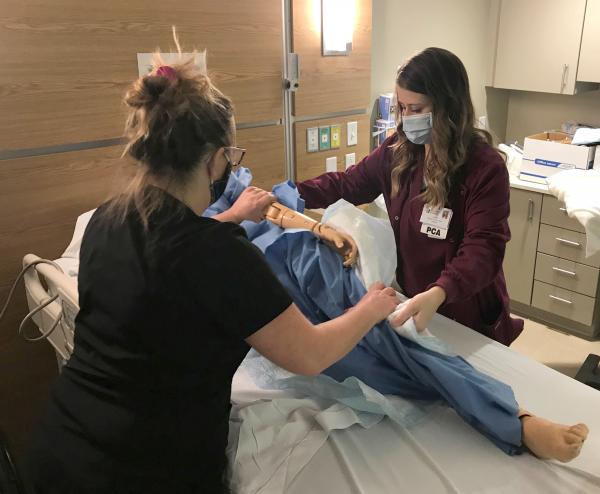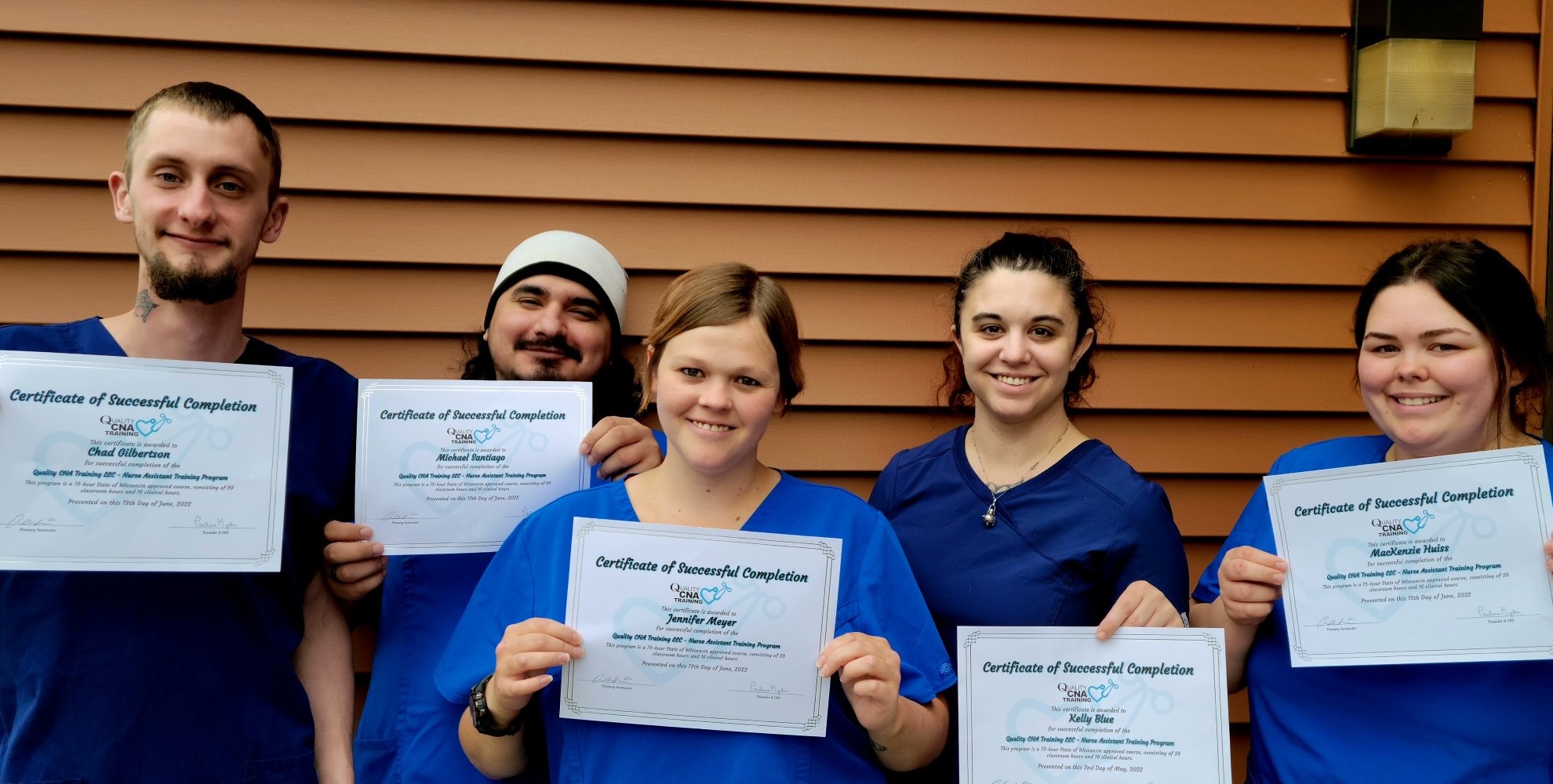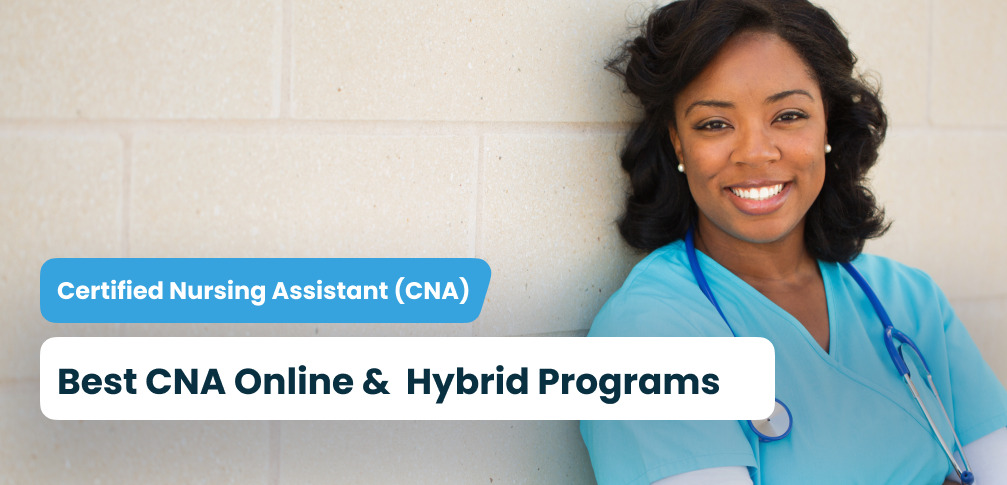CNA Classes and Nursing Pathways: What Comes Next?
Wiki Article
Just How CNA Classes Can Aid You Launch an Effective Job in the Medical Field
CNA classes serve as a foundational stepping rock for individuals desiring get in the clinical area. These programs impart necessary skills, consisting of reliable interaction and individual treatment techniques. Pupils take part in hands-on training, linking concept with practical application. As the demand for health care specialists grows, the role of a Certified Nursing Assistant comes to be progressively substantial. This increases inquiries regarding the numerous career courses and innovation possibilities that lie in advance for those that complete their training.
Comprehending the Duty of a Certified Nursing Assistant
The function of a Certified Nursing Assistant (CNA) is important to the medical care system, acting as an important link in between patients and medical personnel. CNAs primarily help clients with day-to-day activities such as showering, clothing, and eating, guaranteeing their comfort and self-respect. They are typically the initial factor of call for people, supplying crucial emotional support and companionship. In enhancement to individual treatment, CNAs are accountable for checking individuals' essential indications, reporting adjustments in problem to taking care of staff, and keeping patient records. Their tasks reach ensuring cleanliness in person settings and assisting with mobility. This role calls for a thoughtful behavior, solid interaction abilities, and the capability to function effectively under stress. By promoting a smooth operations within health care setups, CNAs play a significant part in enhancing the overall client experience and sustaining the more comprehensive clinical group in delivering high-quality care.Key Abilities Gotten in CNA Classes
CNA classes gear up students with crucial skills necessary for providing top quality client care. One of the key abilities developed is effective interaction, allowing CNAs to engage compassionately with patients and plainly relay info to medical care groups. Pupils additionally find out important reasoning, which helps in reviewing individual needs and responding properly in different scenarios.Additionally, CNA programs highlight individual care skills, incorporating help with day-to-day living activities such as showering, dressing, and feeding - CNA Classes. Infection control techniques are another vital element, ensuring that trainees comprehend how to maintain a risk-free setting for both people and themselves
Pupils gain knowledge in basic medical terminology, helping with better understanding of medical care practices. Time monitoring skills are grown to aid CNAs prioritize tasks successfully. Generally, these vital abilities develop the structure for a successful career in the medical area, preparing pupils to satisfy the diverse demands of patients.

The Advantages of Hands-On Training
Getting practical experience via hands-on training is important for striving CNAs, as it links the space in between theoretical expertise and real-world application. This immersive learning technique makes it possible for trainees to create crucial abilities needed for patient treatment, such as effective communication, compassion, and technological abilities. Engaging in real-life circumstances allows students to understand the characteristics of a health care environment, fostering self-confidence in their capabilities.In addition, hands-on training aids trainees end up being accustomed to vital tools and treatments, ensuring they are well-prepared for the difficulties of the work. It additionally provides opportunities to get instant feedback from teachers, enhancing the finding out experience. By functioning directly with clients under supervision, aspiring CNAs can sharpen their empirical skills and learn to react to numerous scenarios properly. Eventually, hands-on training equips these future medical care specialists with the skills and assurance needed to prosper in their duties.
Job Opportunities After Becoming a CNA
Many profession opportunities wait for individuals who finish their CNA training, opening doors to various duties in the healthcare field. Certified Nursing Assistants (CNAs) are essential participants of the medical care team, offering straight individual treatment in settings such as healthcare facilities, nursing homes, and assisted living facilities - CNA Classes. Their duties can include helping with daily living tasks, monitoring critical indications, and providing psychological assistance to patientsPast typical settings, CNAs may additionally discover opportunities in specialized areas, such as recovery centers or home health and wellness treatment. Furthermore, some may shift into duties in management assistance or client campaigning for, leveraging their direct experience with patients. The demand for CNAs remains to expand, driven by an aging populace and a raised concentrate on quality individual treatment. This high need guarantees that individuals getting in the area click for source have a range of alternatives to seek, making it an appealing access factor into a fulfilling career in healthcare.
Paths for Advancement in the Medical Care Area
Innovation in the medical care area uses several pathways for individuals seeking to enhance their careers beyond the duty of a Certified Nursing Assistant. After obtaining experience, several CNAs choose to go after further education and certifications, such as coming to be a Licensed Nurse (LPN) or Registered Registered Nurse (REGISTERED NURSE) This shift typically involves enrolling in linking programs that acknowledge their current abilities.Furthermore, specialized certifications in areas like geriatrics or pediatrics can open up doors to specific niche roles, enhancing both work satisfaction and wage potential. CNAs might also explore administrative settings, such as health treatment administration or patient treatment coordination, which utilize their frontline experience in a various click over here capability.
Continuous expert growth through workshops and seminars can maintain CNAs upgraded on industry requirements, making them a lot more competitive candidates for innovation. Consequently, the health care area provides different opportunities for development, enabling CNAs to form their profession trajectories effectively.
Often Asked Concerns

Just How Long Do CNA Classes Typically Require To Full?
CNA classes normally take between four to twelve weeks to finish, depending on the program structure. Aspects such as training course intensity, scheduling, and the organization's educational program layout can influence the overall duration of training.What Is the Expense of CNA Training Programs?
The expense of CNA training programs differs widely, generally ranging from $300 to $2,000. Aspects affecting this expense consist of place, program size, and whether the training is used via area universities or exclusive institutions.Are Online CNA Classes Available?
On the internet CNA classes are without a doubt readily available, supplying versatility for trainees. Numerous institutions provide virtual training, enabling people to finish coursework at their very own pace while still meeting the required requirements for certification in nursing assistance.What Is the Certification Test Refine Like?
The accreditation exam description process normally involves a written test assessing knowledge and an abilities demo. Candidates must pass both parts to come to be licensed, ensuring they meet the necessary expertises required for nursing aide functions.Do I Need Previous Medical Care Experience to Register in CNA Classes?
Prior healthcare experience is not a prerequisite for enrolling in CNA classes. People from different backgrounds can get in the program, as it is made to offer comprehensive training and expertise needed for successful certification and technique.Report this wiki page